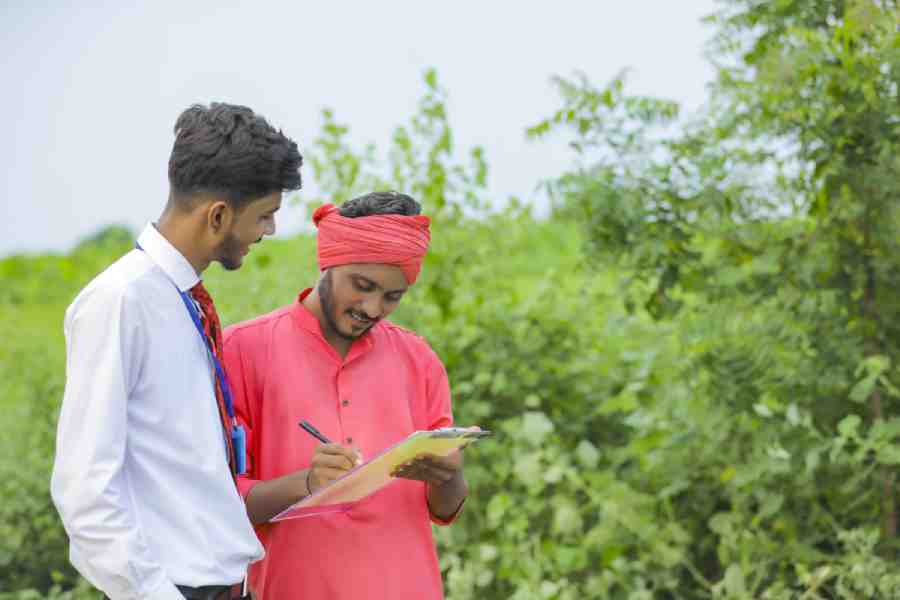Field of vision


With the world population projected to reach 9.7 billion by 2050, the demand for agricultural products continues to grow. Consequently, the agricultural sector offers a range of career opportunities, from working on a farm to researching crop genetics, soil science, and agricultural economics.
“What high school students may not realise is the wide range of careers available in agriculture,” says Amy Crosby, senior research fellow in agri-tech at Australia’s Central Queensland University. She continues, “Apart from working on a farm to produce crops or milk, there are also other related jobs that they can go into. For example, they can be precision technologists who apply technology and data analysis techniques to agricultural practices, agricultural economists, agronomists or even work in sales or marketing.”
India’s agriculture sector contributes to 18 per cent of the GDP. Along with farming, this sector includes crop production, animal husbandry, horticulture, fisheries, agro-processing and agricultural research. Each of these activities offers a range of career options to suit various interests and educational backgrounds. Agricultural research has gained importance and is crucial in developing new crop varieties and improving agricultural productivity. The Indian Council of Agricultural Research (ICAR) is the primary organisation in the country to promote agricultural research and education.
Students who would enjoy working in agriculture are those interested in the natural world — plants, animals and ecosystems. Also those who enjoy hands-on work and being outdoors and are passionate about sustainability and conservation. Those with a tech bent of mind could also use their expertise here; modern agriculture involves the use of cutting-edge technology and tools.
Several colleges offer generic agriculture programmes as well as more specialised courses in soil science, horticulture, fisheries science, dairy technology, veterinary science and animal husbandry.
Randeep Kaur Bal who is head of the postgraduate department of Agriculture, Khalsa College, Amritsar, says, “As per the ICAR norms, our four-year BSc agriculture course consists of three years of theory and one final year of application. In this final year, students choose two experiential learning modules (ELMs) from courses like organic production, beekeeping, dairy production, mushroom production and polyhouse vegetable cultivation. They also undergo agro-industrial training and a rural engagement programme.”
Interdisciplinary programmes such as agriculture engineering or agri-business management are also getting very popular. Some of the IIMs, the Institute of Rural Management, Anand (IRMA), in Gujarat and the National Institute of Agricultural Extension Management (MANAGE) in Hyderabad are institutes that offer postgraduate programmes in agri-business or rural management.
Programme officer at MANAGE A.S. Charyulu shared that students are keen to enter this sector for various reasons. “For one, the pandemic did not shake this sector even though other sectors were badly affected. It has immense potential, and the new trend is towards innovations and agri-startups. We even see those from other streams like engineering, management, finance and software getting into organic farming, natural farming. People are becoming more conscious and realising the importance of food and agriculture.”
Agri input companies — that manufacture fertilisers, pesticides and farm implement as well as those that supply seeds — banks like HDFC, and NABARD hire students from these institutes. According to Charyulu, in 2022, the average salary was aboutRs 11.25 lakh and a few offers went up to Rs 20 lakh per annum. He says, “A few who were recruited for assignments abroad got a higher package.”
Smart farming technologies such as sensors, GPS-driven location data, robotics and analytics are slowly but surely changing the face of agriculture in India. Technology start-ups have helped farmers and other stakeholders keep track of their farms and make better decisions through these latest technologies. According to a report by Avendus Capital, the agritech market is anticipated to grow at almost 50 per cent, hitting $34 billion by 2027.
Though ICAR’s primary focus is on agricultural research and education, it has been actively promoting technology start-ups in the agriculture sector through various schemes and initiatives. “Students are encouraged to take up these techno-entrepreneurship ventures, which will provide them with lucrative returns,” says B.K. Jha, university coordinator placements, and head of the agriculture department, Birsa Agricultural University, Ranchi. He continued, “For instance, ICAR has launched the Agri-TBI (technology business Incubator) Scheme to support technology start-ups in the agriculture sector, providing them with necessary infrastructure, mentoring and funding support.”
Jha says there is a lot of research going on in robotics and Birsa Agricultural University has developed some robots with C-DAC Calcutta and IIT Kharagpur. He says, “We have also made headway with nano and biofertilisers to ensure sustainability in the production system.”
For too long, agriculture has been pigeonholed as a backward industry that doesn’t offer great career options. However, recent data and statistics say otherwise. Not only do careers in agriculture provide tremendous opportunities for career growth, but many are financially rewarding, too.